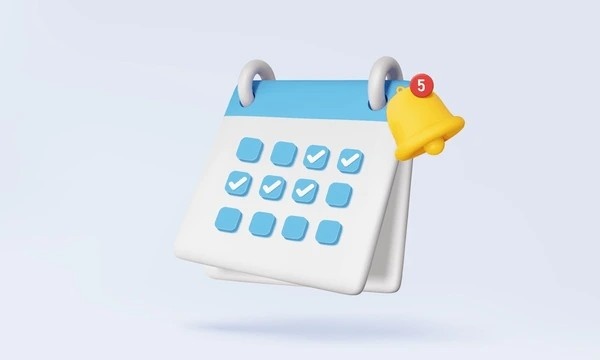If you run an online store with Shopify, you’re probably always looking for ways to streamline your workflow, improve customer experience, and stay organized. One of the best ways to do that is by using a calendar plugin. However, finding a free option that meets your needs can be a challenge. In this article, I’ll walk you through some of the best free Shopify calendar plugins available, and I’ll compare them based on various features and functionalities. By the end, you’ll have a clear understanding of which plugin suits your business requirements.
Why Should You Use a Calendar Plugin on Your Shopify Store?
When managing an e-commerce store, keeping track of important dates is crucial. This includes promotions, sales events, product launches, and holidays. A calendar plugin can help you stay organized by providing a visual representation of your schedule. But it’s not just about personal organization. A calendar plugin can also improve your customer experience, allowing them to view your upcoming events or availability directly on your site.
Here are some reasons you might want to consider a calendar plugin for your Shopify store:
- Event Management: Easily keep track of events such as sales, discounts, product releases, or shipping cut-off dates.
- Customer Engagement: Allow customers to book appointments or reserve products.
- Organization: Ensure you don’t miss important deadlines or promotional events.
- Visual Appeal: A well-integrated calendar adds a professional touch to your online store.
Now, let’s dive into the best free calendar plugins for Shopify and see which ones stand out.
Best Free Shopify Calendar Plugins
I’ve reviewed several free Shopify calendar plugins, each offering unique features. In this section, I’ll break down the most popular ones, focusing on their functionality, ease of use, and integration capabilities.
1. Event Calendar App by POWr
The Event Calendar App by POWr is one of the most popular calendar plugins for Shopify. It’s user-friendly, visually appealing, and easy to integrate into your Shopify store.
Features:
- Drag-and-drop interface for event management.
- Customizable colors and themes.
- Responsive design for mobile users.
- Ability to display event details, images, and links.
This plugin is ideal if you want to display upcoming events or sales. Its intuitive interface makes it easy to use, even for beginners.
2. BookThatApp
For Shopify store owners who want to integrate booking functionality into their stores, BookThatApp is a solid option. It allows customers to book appointments, services, or rentals.
Features:
- Flexible booking options (hourly, daily, or custom time slots).
- Integration with Google Calendar.
- Supports multiple staff and location management.
- Customizable booking forms.
While the free version of this app has limitations, it’s still a great option if you need simple booking features.
3. Shopify Booking App
If you’re looking for a more straightforward calendar plugin with fewer frills, Shopify Booking App is a simple but effective option. It’s ideal for stores that want to schedule appointments or reservations.
Features:
- Basic appointment scheduling.
- Syncs with your Shopify orders and calendar.
- Allows customers to choose from available time slots.
While the functionality is more basic than some of the others, it serves its purpose for simple calendar needs.
4. Simple Calendar
Simple Calendar is another free option worth considering. It allows store owners to display a calendar of upcoming events, sales, or holidays. This plugin’s main appeal lies in its simplicity and straightforward setup.
Features:
- Clean, minimalist design.
- Easy integration with Shopify.
- Customizable event colors and descriptions.
- Simple user interface.
This plugin is a great choice if you want to add a calendar without complicating your site’s layout.
Comparison of Free Shopify Calendar Plugins
Here’s a comparison table to help you quickly identify the key differences between these plugins:
| Feature | Event Calendar by POWr | BookThatApp | Shopify Booking App | Simple Calendar |
|---|---|---|---|---|
| Event Management | Yes | Yes | Yes | Yes |
| Booking Capability | No | Yes | Yes | No |
| Customizable Design | Yes | Limited | No | Yes |
| Mobile Compatibility | Yes | Yes | Yes | Yes |
| Google Calendar Integration | No | Yes | No | No |
| Free Version Availability | Yes | Yes | Yes | Yes |
| Ease of Use | Very Easy | Moderate | Easy | Very Easy |
| Suitable For | Event Displays | Appointments & Bookings | Appointments | Simple Event Display |
This table should give you a better overview of which plugin fits your specific needs.
How to Choose the Right Calendar Plugin for Your Shopify Store
Selecting the right calendar plugin depends on the features you need and how you plan to use the calendar. Here are some tips to help you make an informed decision:
- For Event Display: If you only need to display events, sales, or product launches, plugins like Event Calendar by POWr or Simple Calendar are great choices. They are easy to use and focus on displaying information without unnecessary complexity.
- For Booking and Reservations: If your store requires booking or reservation functionality, BookThatApp and Shopify Booking App are worth considering. While BookThatApp offers more advanced features like Google Calendar integration, the Shopify Booking App is more basic and might suit stores with less complex booking needs.
- Customization Options: If customization is a priority, Event Calendar by POWr and Simple Calendar offer more flexibility in terms of design. This can help ensure that your calendar integrates seamlessly with your store’s look and feel.
- Integration with Other Tools: For those who rely on tools like Google Calendar, BookThatApp is the best choice due to its robust integration options.
- Simplicity vs. Complexity: If you want something simple and easy to set up, Simple Calendar might be your best bet. On the other hand, if you need more advanced features like customizable booking forms, BookThatApp may be worth the extra configuration time.
Additional Tips for Optimizing Calendar Plugin Use
Once you’ve selected a plugin, you’ll want to ensure that you get the most out of it. Here are a few tips for optimizing your calendar plugin:
- Regularly Update Your Events: Keep your calendar up-to-date with the latest sales, promotions, and product launches. This ensures that your customers are always aware of what’s coming up next.
- Sync with Your Shopify Store: If your plugin offers integration with your Shopify store, make sure to take full advantage of this feature. For instance, syncing appointment bookings directly with your Shopify orders will help streamline your workflow.
- Monitor Performance: Track the performance of your calendar plugin. Are customers interacting with the calendar? Are they booking appointments or signing up for events? Analyzing user engagement can help you understand if the plugin is fulfilling its purpose.
- Mobile Optimization: Since many shoppers browse and shop from their mobile devices, make sure that your calendar plugin is mobile-friendly. This will ensure a seamless user experience for all of your customers.
Final Thoughts
As Shopify store owners, we need tools that make our jobs easier and help us stay organized. A calendar plugin can do just that, and with the free options available, it’s easier than ever to find one that fits your needs. Whether you need a basic event display, an appointment scheduler, or something in between, there’s a free Shopify calendar plugin that can help.
By evaluating the features and understanding how each plugin aligns with your business, you can choose the right tool to improve your store’s organization and enhance your customers’ experience.





